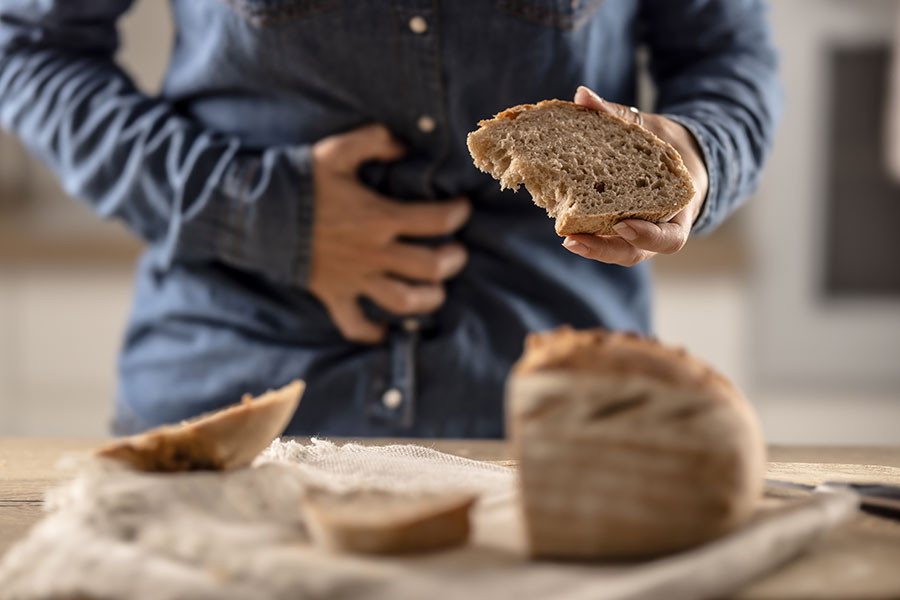In recent years, you may have seen an increase in “gluten-free” foods and other products in stores, eateries, and more, or perhaps even heard jokes about how they’re some goofy fad to be made fun of. However, there’s a very good reason for the wider availability of gluten-free products: they are essential to the health and well-being of people with celiac disease, a genetic digestive disorder that affects an estimated 1 in 100 people worldwide (and quite probably many more, considering how often it goes undiagnosed).
Named after the Greek word “koiliakos,” meaning “abdominal,” celiac disease is a lifelong inability to digest gluten, a protein found in wheat, barley, and rye, and the products made from them such as bread, beer, cereal, pasta, and many more foods and drinks. Packaging may have “gluten-free” marked on it to denote their product as safe for celiac patients, but not all do, so check ingredient listings carefully.

In celiac patients, consuming gluten triggers an immune system reaction in the small intestine, damaging the villi (or internal lining) of the organ which is crucial to absorbing the nutrients the body needs to function, such as iron and vitamin D. The “stages” of celiac disease are determined by the severity of damage to the villi at diagnosis.
Symptoms include:
● Diarrhea, constipation, bloating and/or gas
● Nausea/vomiting
● Weight loss and missed menstrual periods
● Fatigue
● Numbness in the limbs
● Abdominal pain
● Mouth ulcers
● Headaches
● Dermatitis herpetiformis (gluten-induced skin rash associated with celiac disease)
Children tend to be more severely affected than adults.
Celiac disease is also associated with numerous other conditions such as nerve damage, joint pain, osteoporosis, depression and anxiety, anemia and iron deficiency, poor dental health, hyposplenism, infertility, and more caused by the body’s increasingly severe inability to absorb vital nutrients. Though it is rare, the damage caused to the intestines by long-term consumption of gluten can cause various cancers, such as non-Hodgkin's lymphoma and intestinal cancers such as small bowel cancer.
While celiac disease is not technically curable, cutting gluten out of your diet will stop symptoms and allow your digestive system to heal. This is currently the only known treatment for celiac disease.
(If you do not suffer from celiac disease, a wheat allergy, or similar conditions, you will likely not see any significant benefits to going on a gluten-free diet.)
Patients sticking to a strict gluten-free diet are not doing it out of personal preference: it is a very real medical necessity that their good health depends on. Even a very tiny amount of gluten can have serious consequences if accidentally consumed.
As such, cross-contamination is also a major concern for celiac patients. This means that, for instance, eating food prepared in the same oil, with the same dishes and utensils, or that has come into contact with gluten in any other way can cause symptoms in celiac patients as well. Food preparation stations and tools must be carefully washed and/or kept separate to avoid cross-contamination.
Anyone avoiding gluten will also have to be on the lookout for non-food products that contain the protein, such as shampoos, makeup and other cosmetic items, prescription medicines, toothpaste and other dental products, and many more.
Celiac is diagnosed through blood work, to test whether you have an abnormally high level of antibodies fighting infection in your system, and/or small intestine biopsy, to check for damage to your intestinal villi. Working with a dietician and your primary care provider after diagnosis can help you keep gluten out of your body.
If you have any questions or concerns, contact us anytime at info@gravityintprog.com. Stay safe and healthy!






